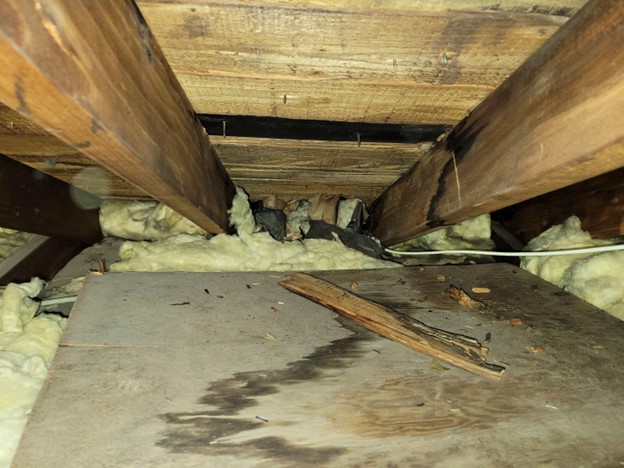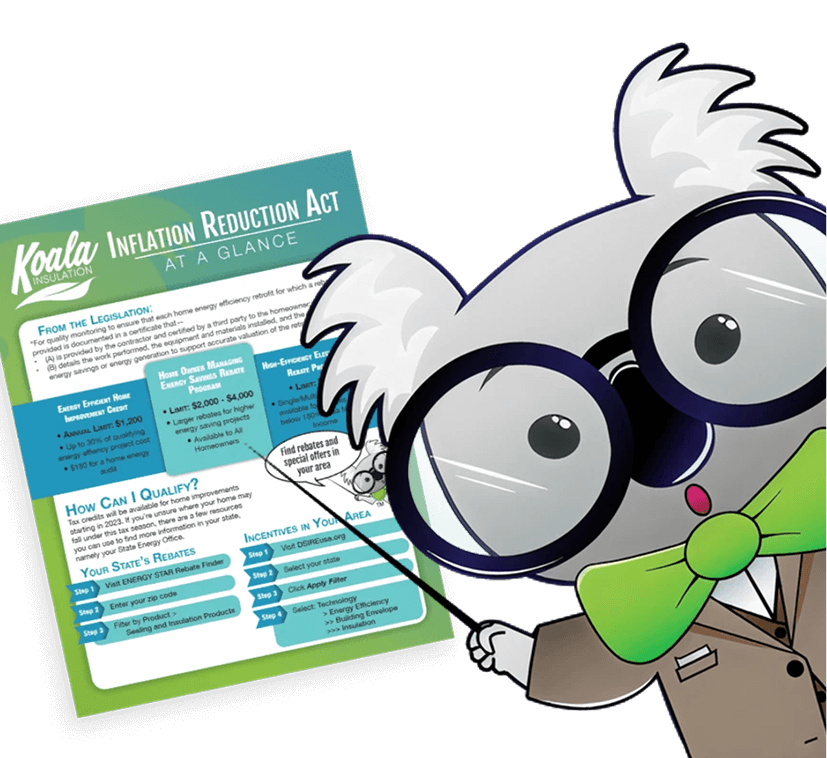Does Insulation Need To Be Replaced After A Roof Leak

When it comes to roof leaks, one of the biggest concerns for homeowners is the potential damage and repairs that may be needed. One aspect that often gets overlooked is insulation. However, if your roof has experienced a leak, you may be wondering if your insulation needs to be replaced as well. In short, the answer is…it depends.
Insulation serves an important purpose in regulating temperature and energy efficiency in a home. When exposed to water from a roof leak, insulation can become damaged and lose its effectiveness. This not only leads to potential mold growth but also higher energy bills due to decreased efficiency.
In this article, we will explore the factors that determine whether or not your insulation needs to be replaced after a roof leak and what steps you can take to address the issue.
Why Roof Leaks Can Affect Insulation
Insulation plays a critical role in the energy efficiency of your home. It helps to keep warm air inside during cold months and cool air inside during hot months, reducing the need for heating and cooling systems and saving you money on utility bills. However, when a roof leak occurs, it can compromise the integrity and effectiveness of your insulation.
Water from a roof leak can seep into the layers of insulation, causing them to become saturated and lose their insulating properties. Wet insulation can also lead to mold growth which not only poses health risks but also causes further damage to your home's structure.
Additionally, if water continues to infiltrate through your roof, it can create an environment where moist conditions persist, making it difficult for your insulation to properly dry out. This can result in the growth of mold and mildew, which not only worsens insulation damage but also creates a musty odor and lowers indoor air quality.
Factors That Determine Insulation Replacement
While it may seem like a simple question of whether or not to replace insulation after a roof leak, several factors come into play. Here are some key considerations to keep in mind:
Severity and duration of the leak
The severity and duration of a roof leak are critical in determining whether insulation needs to be replaced. A minor leak that is quickly addressed may only cause superficial damage to the insulation, allowing it to retain much of its original effectiveness.
However, if a leak persists for an extended period or is particularly severe, the insulation can become heavily saturated, leading to significant degradation. Prolonged exposure to water can not only reduce the insulation's R-value but also create an optimal environment for mold and mildew growth.
In such cases, even if the insulation appears visually intact, its performance may be compromised, making replacement a necessary consideration to restore both comfort and energy efficiency in your home.
Type of insulation and roofing materials
The type of insulation used in your home, as well as the type of roofing materials, can also impact the need for replacement. For example, fiberglass insulation can retain moisture longer than other types such as cellulose or spray foam. This means that it may require replacement more frequently after a roof leak.
Similarly, different roofing materials have varying levels of resistance to water damage. Asphalt shingles, while commonly used and affordable, are more susceptible to leaks compared to metal or tile roofs. If your roof is made from less water-resistant materials, your insulation may be at higher risk for damage and require replacement sooner.
Age and condition of insulation
The age and condition of your insulation are also important factors to consider. If your insulation is relatively new and in good condition, it may be able to withstand minor water exposure without requiring replacement. However, older insulation that has already started to degrade and lose its effectiveness will likely need to be replaced after a roof leak.
If you are unsure about the condition of your insulation, it is best to have a professional assess the situation and make any necessary recommendations for repair or replacement.
Amount of water damage
Ultimately, the amount of water damage sustained by your insulation will be one of the biggest determining factors in whether or not it needs to be replaced. Insulation that has only been slightly dampened may be salvageable with proper drying and treatment. However, insulation that has been heavily saturated or submerged in water will likely need to be replaced.
It is important to act quickly when addressing a roof leak to minimize the extent of water damage to your insulation. The longer it remains wet, the greater the risk of mold growth and decreased effectiveness.
Steps To Take After A Roof Leak
There are several steps you can take after a roof leak to address any potential damage to your insulation and ensure the continued efficiency of your home:
- Evaluate the severity and duration of the leak: As discussed earlier, this will help determine if replacement is necessary. Plus, if the leak is ongoing, you will need to address that first before moving on to any insulation concerns.
- Assess the condition of your insulation: Check for signs of water damage, such as discoloration or a musty odor. If you are unsure, it is best to have a professional inspect it.
- Dry out wet insulation: If the damage is minimal and limited to one area, you may be able to dry out the insulation using fans or dehumidifiers. However, keep in mind that this approach may not be effective for all types of insulation.
- Replace damaged or ineffective insulation: In cases where there is significant water damage or mold growth, it is best to replace the affected insulation.
- Address any underlying issues: After replacing or drying out your insulation, it is crucial to fix the underlying cause of the roof leak to prevent future damage.
By understanding the factors that determine insulation replacement and taking prompt action after a roof leak, you can protect your home's comfort and energy efficiency while also avoiding potential health hazards caused by mold growth.
Why A Professional Is Necessary
While it may be tempting to handle insulation replacement yourself, this is a task best left to professionals. Not only do they have the necessary knowledge and experience to properly assess the condition of your insulation, but they also have the tools and equipment needed for safe and effective replacement.
Additionally, professionals can help identify the underlying cause of a roof leak and address any potential issues before replacing your insulation. This can save you time, money, and stress in the long run.
Furthermore, professional contractors are trained to handle insulation properly, ensuring that it is installed correctly and safely without any gaps or compression. Improper installation can lead to decreased effectiveness and potential hazards.
Choose Koala Insulation for Your SW Chicago Home
If you live in the greater SW Chicago area and need insulation services, look no further than Koala Insulation. Our team of professionals has over 15 years of experience in construction and home services, making us knowledgeable and experienced in all aspects of insulation.
We understand the importance of promptness and cleanliness when it comes to home projects, which is why we promise to arrive on time and leave your home clean after our one-day service. We also offer a variety of insulation types to choose from, helping you find the best option for your specific project.
At Koala Insulation, we strive to provide excellent customer service and make sure our customers are satisfied with our work. We are proud to use high-quality brands such as JM, Applegate, Owens Corning, and Green Fiber in our installations.
We not only work on residential properties but also offer insulation services for mobile homes, metal buildings, and even industrial and commercial spaces. Our service areas include Cook, Will, and Dupage counties, with zip codes ranging from 60415 to 60561.
Contact Koala Insulation today for a free evaluation and see the many benefits of our high-performance insulation. So, call now at (708) 722-4535.
FAQs
Does loose fill insulation need to be replaced after a roof leak?
Yes, if loose fill insulation becomes completely soaked due to a leaking roof, it often needs to be replaced. Wet insulation can lose its effectiveness, absorb water, and become a breeding ground for mold. Replacing it ensures the structural integrity of your ceiling joists and prevents mold from developing in your home.
Can foam insulation still function after a minor water leak?
Foam insulation, unlike loose fill insulation, may not need to be completely replaced if only a small leak occurs and it can completely dry out. However, it is crucial to ensure that no water is trapped within the foam as it can compromise the material's integrity and effectiveness.
What are the risks of not replacing wet insulation after a leaking roof?
Not replacing wet insulation after a roof leak can lead to several issues, including reduced insulation effectiveness, structural damage to ceiling joists, and mold growth. Wet insulation can also continue to absorb water, exacerbating these problems and potentially leading to more severe structural issues.
How can replacing insulation after a roof leak prevent mold growth?
Replacing insulation that has been affected by a roof leak is essential to prevent mold growth. Wet insulation provides an ideal breeding ground for mold, which can pose health risks and further damage building materials. Ensuring that all affected insulation is removed and replaced helps maintain a healthy indoor environment and preserves the structural integrity of your home.
Conclusion
In conclusion, while a roof leak can be a stressful and inconvenient situation, it is important to prioritize the condition of your insulation to maintain the comfort and efficiency of your home. The age and condition of your insulation, as well as the amount of water damage sustained, are key factors in determining whether replacement is necessary.
After addressing any underlying issues, it is best to have a professional handle the replacement process for safe and effective results. Look no further than Koala Insulation for all your SW Chicago insulation needs.
Find Your Location


Get a quote



